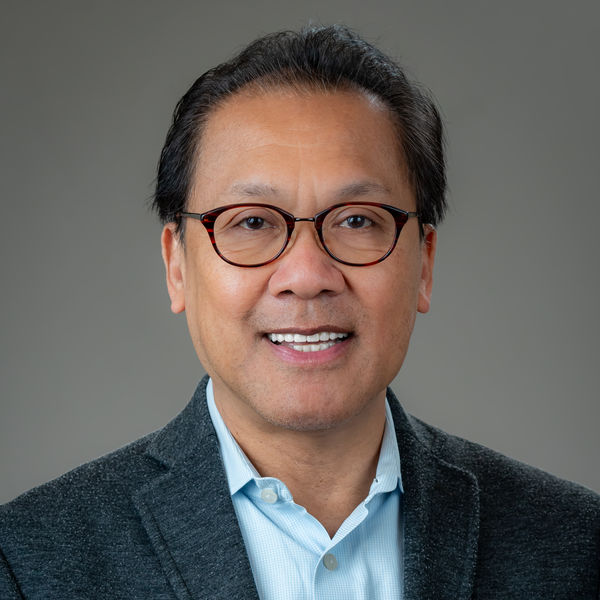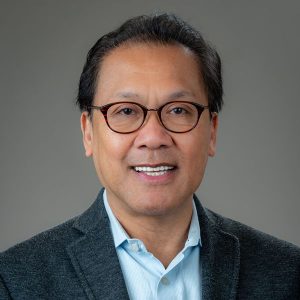DEMYSTIFYING WSIS: History of the World Summit on Information Society and WSIS+20 Review Opportunities

DEMYSTIFYING WSIS:
History of the World Summit on Information Society and
WSIS+20 Review Opportunities
Intervention by Liberato Bautista[1]
February 17, 2025 | 13:15 -14:30 EST | UN HQ New York
Excellencies, ladies, and gentlemen:
- Thank you for inviting me to speak at this event, “Demystifying WSIS: History of the World Summit on Information Society and WSIS+20 Review Opportunities.” I also appreciate the moderator’s kind introduction and the question that allows me to highlight how CoNGO has connected with the broader landscape of internet governance in relation to the WSIS process.
- CoNGO, the Conference of NGOs in Consultative Relationship with the United Nations, and I are familiar with the WSIS Process. CoNGO participated in both the Geneva (2003) and Tunis (2005) conferences. At these events, CoNGO emphasized the importance of civil society’s access to the conference, as it established the groundwork for a multistakeholder framework for internet governance. During those two conferences, I had not yet become president of CoNGO; instead, I represented the General Board of Church and Society of the United Methodist Church. As a faith-based actor, I was deeply involved in developing what are now known as the WSIS Action Lines, especially Action Lines 9 (Media) and 10 (Ethical Dimensions of the Information Society), along with the digital solidarity agenda.
- CoNGO reaffirms its commitment to the WSIS Process. Since Geneva and Tunis, CoNGO has participated in the WSIS Forum and subsequent High-Level Events. CoNGO has actively engaged in these Forums and HLEs by organizing side events. As the president of CoNGO, I have served as a High-Level Track Facilitator for the past three WSIS High-Level Forums. CoNGO’s involvement in these events is significant because it reflects the genuine recognition of the vital role that civil society and NGO actors play, as acknowledged by the leadership and secretariat of the WSIS Process at ITU, UNDP, UNESCO, and UNCTAD.
- The WSIS Process has reached a mature stage, and CoNGO has concentrated its primary efforts on internet governance and the fundamental principles it must uphold. In December 2010, the Under-Secretary-General of the United Nations Department of Economic and Social Affairs (DESA) organized an “Open Consultation on the Process Toward Enhanced Cooperation on International Public Policy Issues Pertaining to the Internet.” The USG requested my participation, as President of CoNGO, to submit a summary of a survey conducted by his office involving accredited civil society entities regarding their perspectives on internet governance. The responses from civil society contributed valuable feedback concerning Paragraph 61 of the WSIS Tunis Agenda, which recognizes “the need to initiate and reinforce, as appropriate, a transparent, democratic, and multilateral process involving governments, the private sector, civil society, and international organizations in their respective roles. This process could envisage a suitable framework or mechanisms, where justified, to stimulate the ongoing and active evolution of current arrangements to synergize efforts in this regard.” It is crucial to highlight ECOSOC Resolution E/Res/2024/13 for its acknowledgment of the WSIS Process and its commitment to open and multistakeholder consultations “on achievements, key trends, challenges, and opportunities on World Summit action lines for achieving the Sustainable Development Goals.”
- CoNGO engages with the WSIS Process because we recognize that WSIS, ITU, and its stakeholders have established exemplary procedures that enable an open and transparent participatory process that could serve as a model across the UN System. The WSIS Open Consultation Process has been vital to the inclusive and participatory character of the multistakeholder platform. CoNGO views the WSIS Process as the global forum for information, communication, and digital technology policy.
- We participate in the WSIS process because, at CoNGO, we prioritize access to the UN’s substantive agenda, which includes digital information and knowledge, as well as entry to the UN’s physical premises and meetings. I refer to this as access to the premises (physical) and promises (agenda) of the UN. The current ICT framework under WSIS is vital to our pursuit of digital solidarity and communication justice. The involvement of NGOs and civil society organizations in this mission is essential. In my remarks at the side event organized by the UN Group on the Information Society during the UN High-Level Political Forum 2024 (WSIS Toward the Summit of the Future and Beyond), I discussed WSIS’s groundbreaking mission to “achieve a shared vision, desire, and commitment to build a people-centric, inclusive, and development-oriented Information Society.” This is a mission and a proven legacy that civil society hopes WSIS will uphold—beyond Agenda 2030, beyond the Pact for the Future and its annexes, into a future that is not only time-bound but also visionary.
- CoNGO welcomed the UN General Assembly’s action on March 11, 2024, regarding “Seizing the opportunities of safe, secure, and trustworthy artificial intelligence systems for sustainable development” (A/78/L.49). This GA resolution thoroughly recognizes the WSIS Process and the relevant documents associated with it. CoNGO eagerly looks forward to contributing to the overall review of the “progress made since the World Summit on the Information Society” in 2025. This review is essential, as the recently adopted Global Digital Compact reaffirmed that “internet governance must continue to be global and multistakeholder in nature… and that it must continue to follow the provisions outlined in the outcomes of the summits held in Geneva and Tunis, including those related to enhanced cooperation” (GDC 27).
- The WSIS Process is not only mature, but it is also the most widely recognized multistakeholder process currently in existence, and it must be maintained. We should focus on sustaining this process rather than considering a replacement. This aligns with the spirit of UN reform, which aims to make the multilateral system transparent, accountable, and inclusive. This brings me to the topic of this event, which is demystification—a very intriguing concept. During the 2010 DESA open consultations, I emphasized the importance of internet governance for democratic governance. At that time, I envisioned a world where we could capture our smiles and laughter, our adventures and exploits, along with our cries and challenges, as well as our discoveries of foibles and mistakes on social media platforms. I wondered which vital aspects of life should be shared so we can all live more fully, humanely, adequately, meaningfully, and sustainably. This approach would prevent us from feeling that many other conversations are happening in the digital realm of which we are unaware and excluded. Multiply this imagination countless times by what digitalization and cybernetics have achieved. Technology has advanced exponentially, but is access to it—in its many forms—sufficiently governed to ensure democratic access? I worry and wonder.
- Now, for the myth. If Prometheus, the Titan, had not stolen fire from the gods and given it to humanity, our technological knowledge might not exist as we know it today. Prometheus is known for defying the Olympian gods by taking fire from them and giving it to humans, which led to technological progress, knowledge, and, more broadly, civilization.
- Internet governance raises concerns about democratic principles, including issues of inclusion and exclusion. WSIS must ensure safe and equitable access to the devices and applications that connectivity provides. Inclusion and access are essential because the growing digital divide and the uneven development of economies threaten our hopes of universalizing the benefits of connectivity.
- Internet governance must expand beyond its many concerns about access to technologies increasingly linked to capital and profit. Moreover, no one should be allowed to claim digital knowledge or technology without facing consequences from those who control technology and capital. This idea causes me anxiety as technology and market interests intertwine and influence our democratic institutions, especially in democratic processes such as elections and discourse at all levels of human life and planetary sustainability. I question whether WSIS is a Promethean task, perhaps also a Robin Hood effort of technology, ensuring that its benefits reach everyone—not just the rulers of technology and capital, but also vulnerable and marginalized populations who currently lack access to technology and the electricity that powers their daily lives and chores.
- To achieve these goals and more, we must collaborate to advance the WSIS mission of developing and improving meaningful internet governance and promoting cooperation. We need to work together to provide WSIS with the resources required to build a truly global framework that is open, inclusive, people-centered, human rights-focused, participatory, fair, and democratic, covering the essential infrastructure and technological architecture. This spirit must flourish, making the practice of universal human rights and the pursuit of sustainable development a reality.
- No one controls the future, but technology and digital tools, including cybernetics, will heavily influence it. The ITU and its partners within the UN system have a proven track record of developing regulatory policies through extensive multistakeholder consultations. The existing digital divide and widespread disinformation on social media do not bode well for a world already overwhelmed by fear and anxiety. I hope that WSIS will address this excess of fear and lack of hope, aiming to establish digital and communication justice now and in the future.
_______________________________________
CoNGO INTERNATIONAL SECRETARIAT
CoNGO New York | Office of the President, 777 UN Plaza, Suite 7C, New York, New York 10017 | T: +1 212 973 1701 | E: president@ngocongo.org
CoNGO Geneva | PostBox 50 | 1211 Geneva 20 , Switzerland | T: +41 22 301 1000 | F: +41 22 301 2000 | E: firstvp@ngocongo.org
CoNGO Vienna | c/o Dr. Martina Gredler, Obere Donaustrasse 43/1/15 A-1020 Vienna, Austria | E: svp@ngocongo.org
www.ngocongo.org
[1] Liberato Bautista is the President of the Conference of NGOs in Consultative Relationship with the United Nations and the Main Representative to the UN of the General Board of Church and Society of The United Methodist Church. This was a presentation at the briefing event “Demystifying WSIS: History of the World Summit on the Information Society and WSIS+20 Review Opportunities” held on February 17, 2025 at Conference Room 12 of the UN Headquarters in New York. The event was organized by the Permanent Mission of Finland to the UN, Permanent Mission of the Republic of South Africa to the UN, International Telecommunication Union, and ICANN (Internet Corporation for Assigned Names and Numbers).


